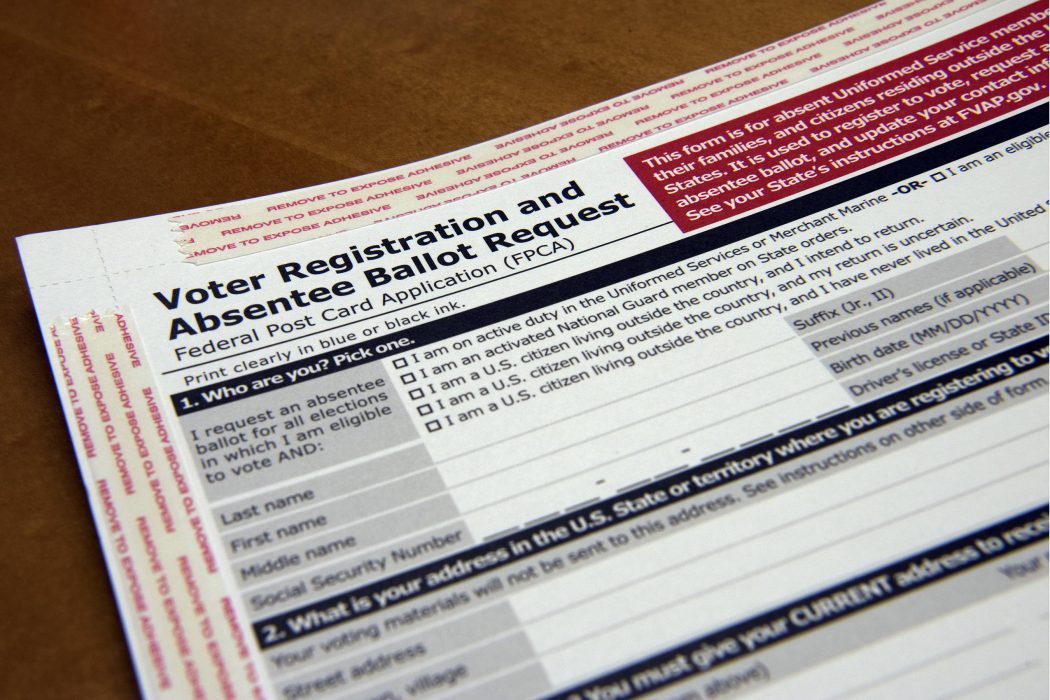Midterm election season is here, and if you are an American student voting from abroad, the process can often be even more painful than getting to Stewart Bio from Otto Mass in under ten minutes. As American students, we often struggle to figure out how to participate in our democratic process via absentee ballot. While resources such as registration drives by clubs like Democrats Abroad exist on campus, many of us just do not have the time when we’re busy juggling exams, papers, samosa withdrawals, attending class, and trying to get in eight hours of sleep.
One anonymous third-year Faculty of Science student from Pennsylvania admitted they “literally [didn’t] know what process to follow to get an absentee ballot.” When asked further about what was impeding her from investigating how to get a ballot, she explained, “I [am] so busy with school, and club work, and other commitments that I don’t even think of it or have the time to figure it out.”
Another third-year student in the Faculty of Arts who is registering in Florida expressed similar problems: “[I] was unfamiliar with the process of getting an absentee ballot, and quite frankly didn’t feel very encouraged to vote since it would be a time-consuming endeavour on top of all my schoolwork.”
In an age where technology has advanced beyond the imaginable, it is hard to believe that the American voting system has remained so archaic.
For others, such as third-year student Giulia Betti in the Faculty of Management, time has been an issue: “I [am] not voting this year [in the New Jersey midterm elections] because I won’t be able to get my ballot in time.”
Some students have voiced other concerns. Claire Rawson-Dannenbaum, the President of Democrats Abroad at McGill, explained the difficulties they have run into when registering students: “In my experience, the most difficult part of voting absentee is that the rules and regulations vary so much state to state, including deadlines.” She further explained that “having a universal voting system with clear and simple bylaws and guidelines would ease the process.” In an age where technology has advanced beyond the imaginable, it is hard to believe that the American voting system has remained so archaic.
As a resident of New York, the instructions that accompanied the emailed version of my registration ballot led to a two-week exercise in frustration. First off, I was sent two different types of absentee ballot forms, one federal and one state. After deciding which one needed to be sent in, I am still not certain I made the correct choice.
Next, it was time to trudge my way to the nearest post office, where I proceeded to pay for the envelope required to send out my registration form. Now, you may be thinking to yourself, what is a few dollars when compared to the ability to exercise your rights in the democratic process? To some, it makes a huge difference. Paying for the ability to vote felt morally objectionable, especially when considering the history of a ‘pay-to-vote’ system in America .
Reflecting on the history of poll taxes in the United States, it is strikingly clear that any sort of pay-to-vote system only further perpetuates discrimination against the disenfranchised. Despite the prohibition of poll taxes with the passage of the 24th Amendment, the disenfranchisement of low-income individuals still exists today in many forms, one of which is, evidently, absentee voting. I’m lucky enough to be in a position where this does not serve as a barrier to vote. But, if this impedes even one American’s ability to exercise their democratic right, it should cause all of us to pause and question the efficacy of our out-of-date laws.
Voting is a right granted to every American citizen above the age of 18, but it is also a right that comes with a literal price. As a student who already had to go through various layers of outdated and complex websites in order to register to vote, paying to send out my registration form was just another example of the United States government’s archaic method of voting.
But, if this impedes even one American’s ability to exercise their democratic right, it should cause all of us to pause and question the efficacy of our out-of-date laws.
While frustration with the system hasn’t impeded me from exercising my voting rights, the same cannot always be said for other American students living abroad.
Unfortunately, this whole process is a microcosm of a growing trend of apathy towards voting and the belief that one’s ‘vote doesn’t matter’ among young voters. It is particularly troubling when looking at past election participation, with baby boomers beating millennials by over twenty percent in turnout, despite millennials being the largest voting generational group by population.
So, while I agree that voting is a painful, difficult, and time-consuming process that is hard to fit into the busy schedule of a McGillian, I still urge you to vote. At the end of the day, exercising your right to vote should be a higher priority than that essay you’ve been trying to write for the last three days. No matter who you are voting for this election season, head out to that Canada Post and cast your ballot!
For more information on your state’s registration deadline, click here. Furthermore, if you are still able to register, you can use this simple website to help ease the process.


